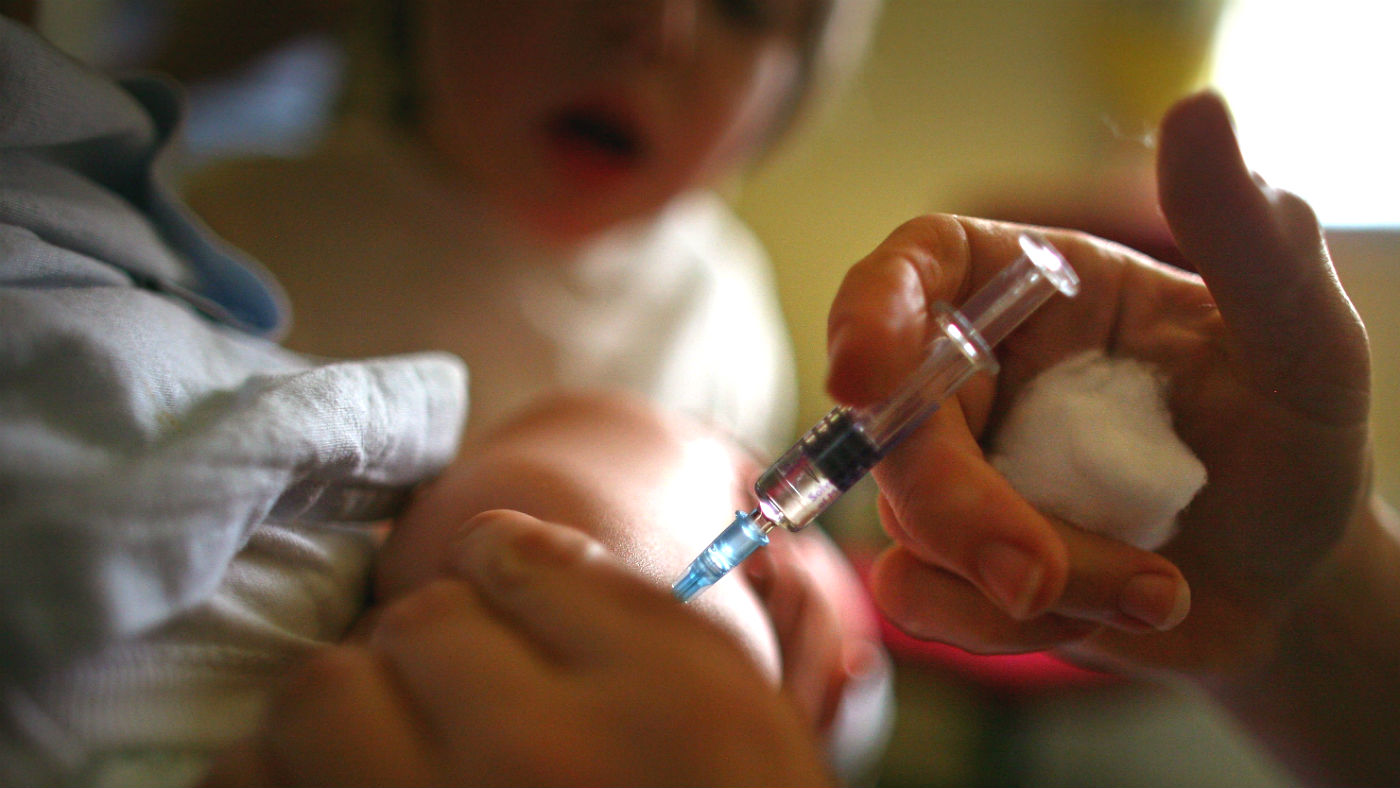Growing anti-vaccination movement linked to rise of populism
Studies show diseases such as measles have soared in countries with strong populist parties

A free daily email with the biggest news stories of the day – and the best features from TheWeek.com
You are now subscribed
Your newsletter sign-up was successful
The growing anti-vaccination movement directly correlates with the rise of populism across Europe, a new study has found.
A paper published in the European Journal of Public Health has mapped big surges in the number of measles cases to countries where populist parties have become prominent, such as Greece, Italy and France.
Charting an underlying link between anti-establishment politics and opposition to vaccines, the report has suggested that public health officials track populist parties in opinion polls as a proxy signal for vaccine hesitancy.
The Week
Escape your echo chamber. Get the facts behind the news, plus analysis from multiple perspectives.

Sign up for The Week's Free Newsletters
From our morning news briefing to a weekly Good News Newsletter, get the best of The Week delivered directly to your inbox.
From our morning news briefing to a weekly Good News Newsletter, get the best of The Week delivered directly to your inbox.
“It seems likely that scientific populism is driven by similar feelings to political populism – i.e. profound distrust of elites and experts by disenfranchised and marginalised parts of the population,” writes the author, Jonathan Kennedy from Queen Mary University of London.
Last December, a separate Guardian investigation “showed growing concern about the impact of populism on public confidence in vaccines, revealing that measles cases in Europe were at a 20-year high, with 60,000 cases and 72 deaths”.
It is “no coincidence that anti-vax scepticism has grown alongside the rise of populist parties and social networks, manipulated by mischief-making external actors including Russia,” says the Financial Times.
“Research has shown Moscow was fast to identify vaccination as a deeply polarising topic — ideal fodder for trolls and bots which have been disseminating pro- and anti-vaccination messages online to sow confusion and discord,” says the paper. By contrast “European governments have been slow to understand the risks to their citizens’ public and political health”, it adds.
A free daily email with the biggest news stories of the day – and the best features from TheWeek.com
In France, where more than 20% of the population does not support vaccines, Marine Le Pen, of the far-right National Rally party (previously the National Front), opposes mandatory immunisations and has questioned their safety, reports The Economist.
In Italy, the ruling Five Star Movement has pushed a dangerously anti-science agenda, opposing new policies that increased the number of required vaccines and fined non-compliant parents while passing a law to end compulsory vaccines for children in state school.
Nor is it confined to right-wing populists in Europe. Greece, which has been ruled by left-wing government since 2014, has the highest per capita level of measles of any western country.
Meanwhile in the US, Donald Trump has tweeted about the dangers of vaccines more than 30 times since becoming president, and has backed one of the most controversial anti-vaxxer theories: that the measles, mumps and rubella (MMR) vaccine can cause autism.
He even invited the report’s discredited author, Andrew Wakefield, to his inaugural ball.
While an unlikely crossover issue, “Libertarians are now making common cause with the left. Both warn of being duped by the allegedly venal interests of 'big pharma',” says the FT.
While public distrust of vaccinations dates back to the 1880s, “fast-forward to 2019 and the anti-vaccination campaign is a global, multi-faced beast - spurred by safety concerns, religious and political beliefs, preferences for homeopathic approaches and widespread misinformation,” reports CNN.
The World Health Organisation has ranked vaccine hesitancy is one of the top ten greatest threats to global health in 2019.
“Vaccination is one of the most cost-effective ways of avoiding disease - it currently prevents 2-3 million deaths a year, and a further 1.5 million could be avoided if global coverage of vaccinations improved,” WHO said.
But the reluctance or refusal to vaccinate despite the availability of vaccines, “threatens to reverse progress made in tackling vaccine-preventable diseases”, it added.
-
 The EU’s war on fast fashion
The EU’s war on fast fashionIn the Spotlight Bloc launches investigation into Shein over sale of weapons and ‘childlike’ sex dolls, alongside efforts to tax e-commerce giants and combat textile waste
-
 How to Get to Heaven from Belfast: a ‘highly entertaining ride’
How to Get to Heaven from Belfast: a ‘highly entertaining ride’The Week Recommends Mystery-comedy from the creator of Derry Girls should be ‘your new binge-watch’
-
 The 8 best TV shows of the 1960s
The 8 best TV shows of the 1960sThe standout shows of this decade take viewers from outer space to the Wild West
-
 US approves world’s first vaccine for honeybees
US approves world’s first vaccine for honeybeesSpeed Read Development hailed as ‘exciting step forward’ in effort to halt decline in bee numbers
-
 ‘Boris Johnson measures success in biceps rather than brain power’
‘Boris Johnson measures success in biceps rather than brain power’Instant Opinion Your digest of analysis from the British and international press
-
 The Week Unwrapped: liberal democracy, medical sexism and football integrity
The Week Unwrapped: liberal democracy, medical sexism and football integritypodcast What does an election in Slovenia tell us about populism in Europe? Why is the government appointing a HRT tsar? And is it too late to save the nation’s game?
-
 Home Office worker accused of spiking mistress’s drink with abortion drug
Home Office worker accused of spiking mistress’s drink with abortion drugSpeed Read Darren Burke had failed to convince his girlfriend to terminate pregnancy
-
 In hock to Moscow: exploring Germany’s woeful energy policy
In hock to Moscow: exploring Germany’s woeful energy policySpeed Read Don’t expect Berlin to wean itself off Russian gas any time soon
-
 Were Covid restrictions dropped too soon?
Were Covid restrictions dropped too soon?Speed Read ‘Living with Covid’ is already proving problematic – just look at the travel chaos this week
-
 Inclusive Britain: a new strategy for tackling racism in the UK
Inclusive Britain: a new strategy for tackling racism in the UKSpeed Read Government has revealed action plan setting out 74 steps that ministers will take
-
 Sandy Hook families vs. Remington: a small victory over the gunmakers
Sandy Hook families vs. Remington: a small victory over the gunmakersSpeed Read Last week the families settled a lawsuit for $73m against the manufacturer